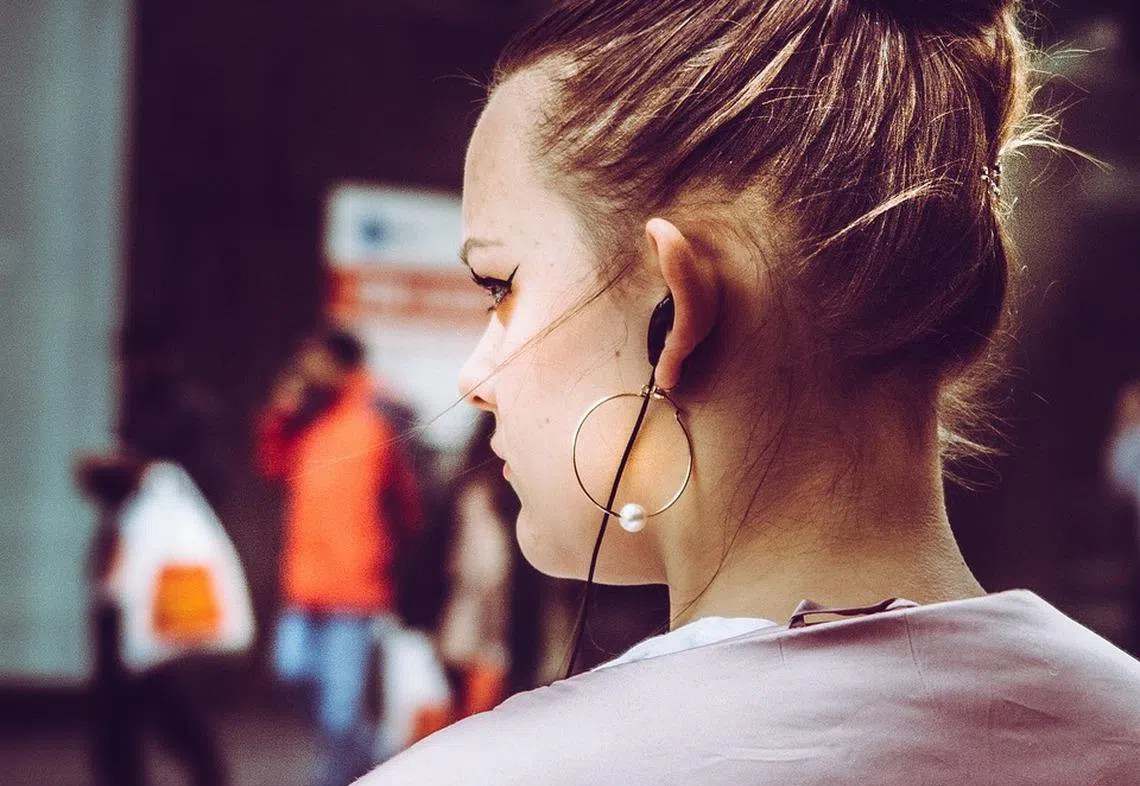During the cold winter months, soaking your feet in hot water can be both relaxing and relaxing. Many people also consider it a health-preserving method.
content
Add the right ingredients
1. Ginger
2. Mugwort
3. Safflower
Choose the Right Time
Do some "small movements"
While foot soaking is beneficial, it's not suitable for some groups of people.
Children
Pregnant Women
Trauma
Diabetic Foot Patients
What are the benefits of foot soaking? How can foot soaking achieve the best health benefits? Who should avoid foot soaking?
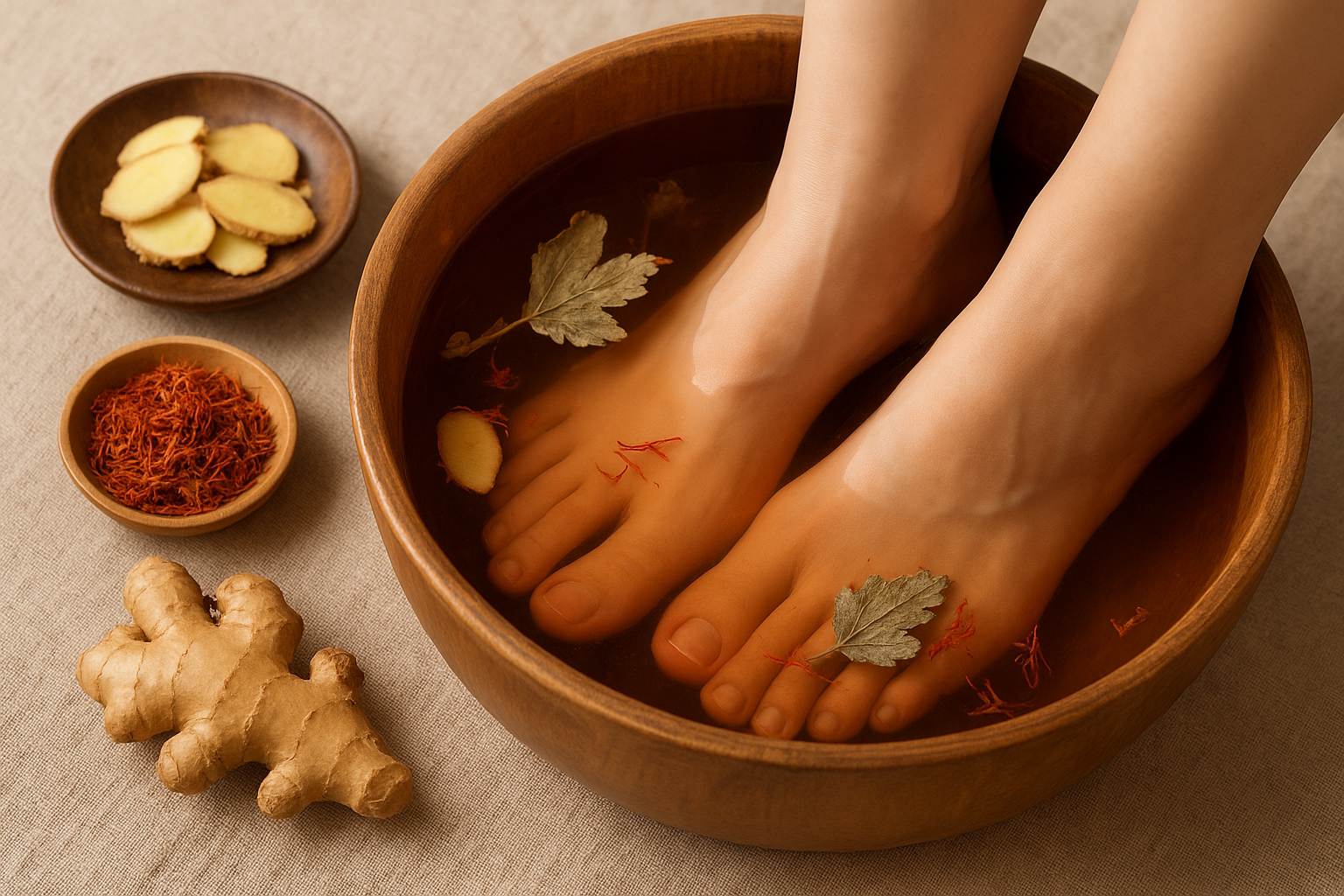
Liu Qingquan, President of the Beijing Hospital of Traditional Chinese Medicine affiliated with Capital Medical University, provided detailed answers to questions from a reporter from China National Radio.
"To care for a tree, you need to protect its roots; to care for a person, you need to protect their feet." Liu Qingquan explained that there are over 60 acupuncture points on the soles of the feet, corresponding to the internal organs. Therefore, foot soaking can effectively relax the meridians, activate blood circulation, and improve organ function.
To maximize the health benefits of foot soaking, Liu Qingquan offers three tips.
Add the right ingredients
Liu Qingquan suggests adding some Chinese herbal medicine slices to your foot soak to enhance its effectiveness.
1. Ginger
Ginger is an excellent herbal remedy for dispelling cold, relieving exterior symptoms, and improving microcirculation.
2. Mugwort
Mugwort has warming and dispersing properties, expelling cold and dampness. For those experiencing joint pain or chronic obstructive pulmonary disease (COPD) with frequent coughs and phlegm, soaking your feet in water boiled with mugwort in winter can help improve these conditions.
3. Safflower
Safflower promotes blood circulation, removes blood stasis, promotes menstruation, and relieves pain. For elderly people with joint pain and cold legs, soaking your feet in water boiled with safflower or ginger is very effective.
"Don't boil this herb for too long; about 10 minutes is generally enough," Liu Qingquan advises. The dosage doesn't need to be excessive; about 15 grams is enough. Fresh ginger can be added, up to 30 grams. A large, deep wooden barrel is best for soaking your feet, as it provides excellent insulation.
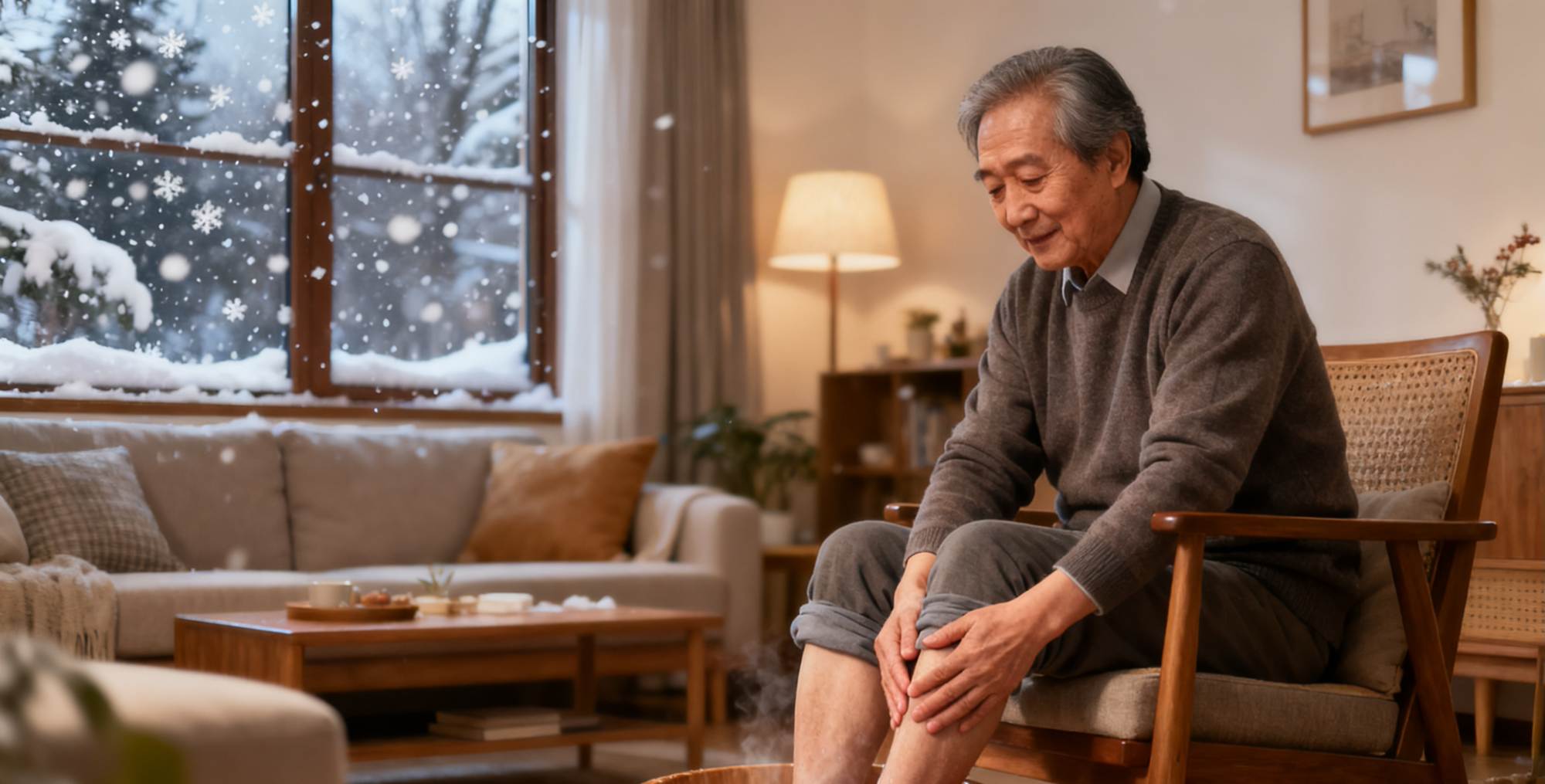
Choose the Right Time
The recommended time for foot soaking is between 7:00 PM and 9:00 PM, and avoid soaking within half an hour after a meal. Liu Qingquan explains that Traditional Chinese Medicine believes that this time is when the kidney meridian's qi and blood are at their weakest. Soaking your feet during this time can strengthen the kidney meridian and provide excellent health benefits.
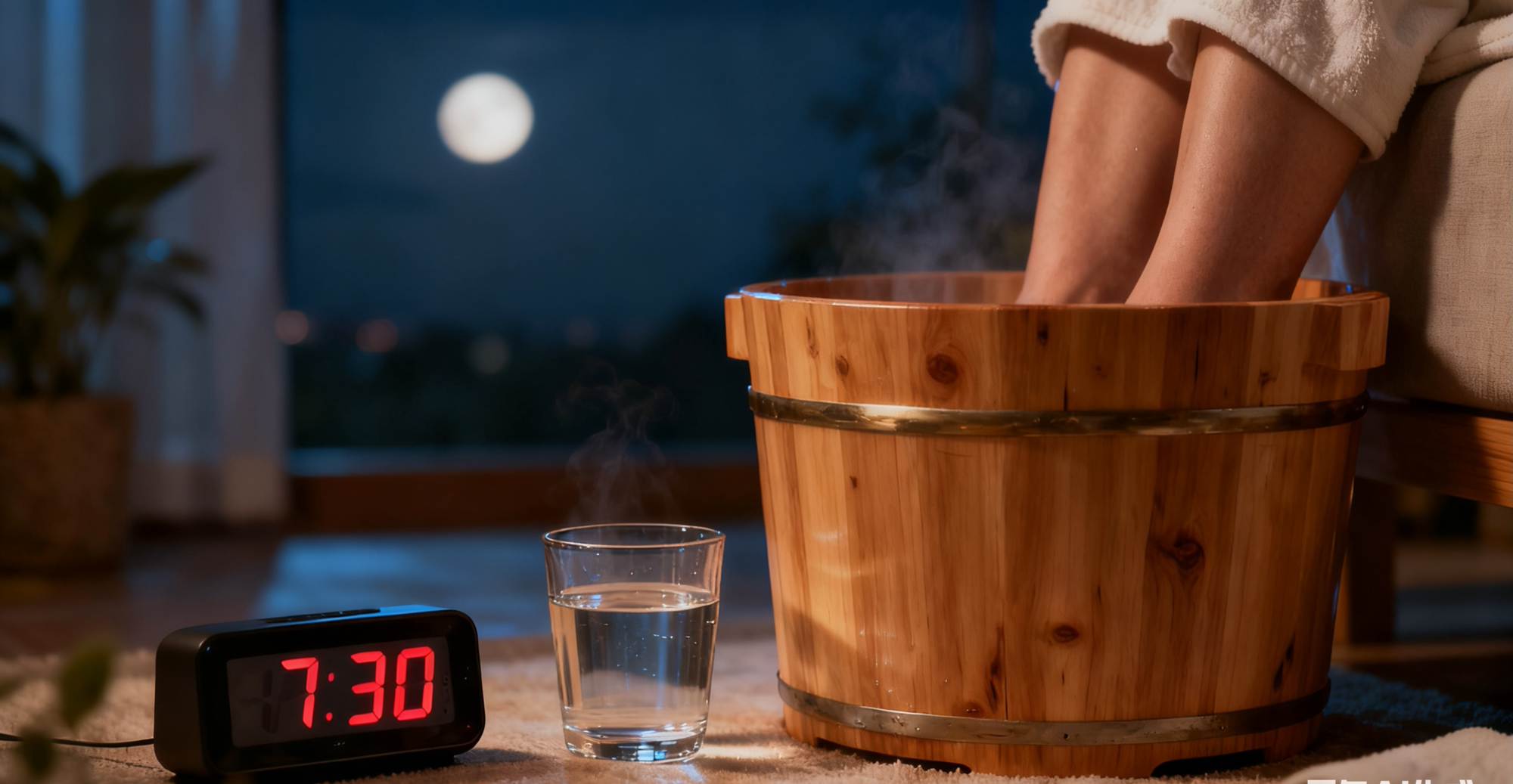
Do some "small movements"
Adding some massage techniques to your foot soak can enhance its health benefits. Liu Qingquan explains that while sitting, pinch your waist with both hands and massage the Shenshu point behind your waist. While washing your feet, massage the Zusanli and Yongquan points and stretch your toes.
While foot soaking is beneficial, it's not suitable for some groups of people.
Liu Qingquan warns that while foot soaking has numerous benefits, it's not suitable for everyone.

Children
Foot soaking is not recommended for infants and young children, as improper temperature control can lead to accidents. Children's skin is more delicate, so foot soaking is generally not recommended. Liu Qingquan advises that if you do decide to soak your feet, it should not exceed 10 minutes.
Pregnant Women
Blood-activating and blood-stasis-removing herbs, including safflower, angelica root, and Chuanxiong, may cause uterine contractions during use, which is harmful to women and the fetus.
Trauma
Foot soaking is not recommended for those with foot injuries, such as blisters, inflammation, suppuration, or ulcers.
Diabetic Foot Patients
It is not recommended to use Chinese herbal medicines for foot soaks. If Chinese medicine is needed, consult a doctor for specific medication based on your individual condition. Furthermore, patients with diabetic foot are not sensitive to temperature and require assistance in testing the water temperature to avoid burns from excessively high temperatures.
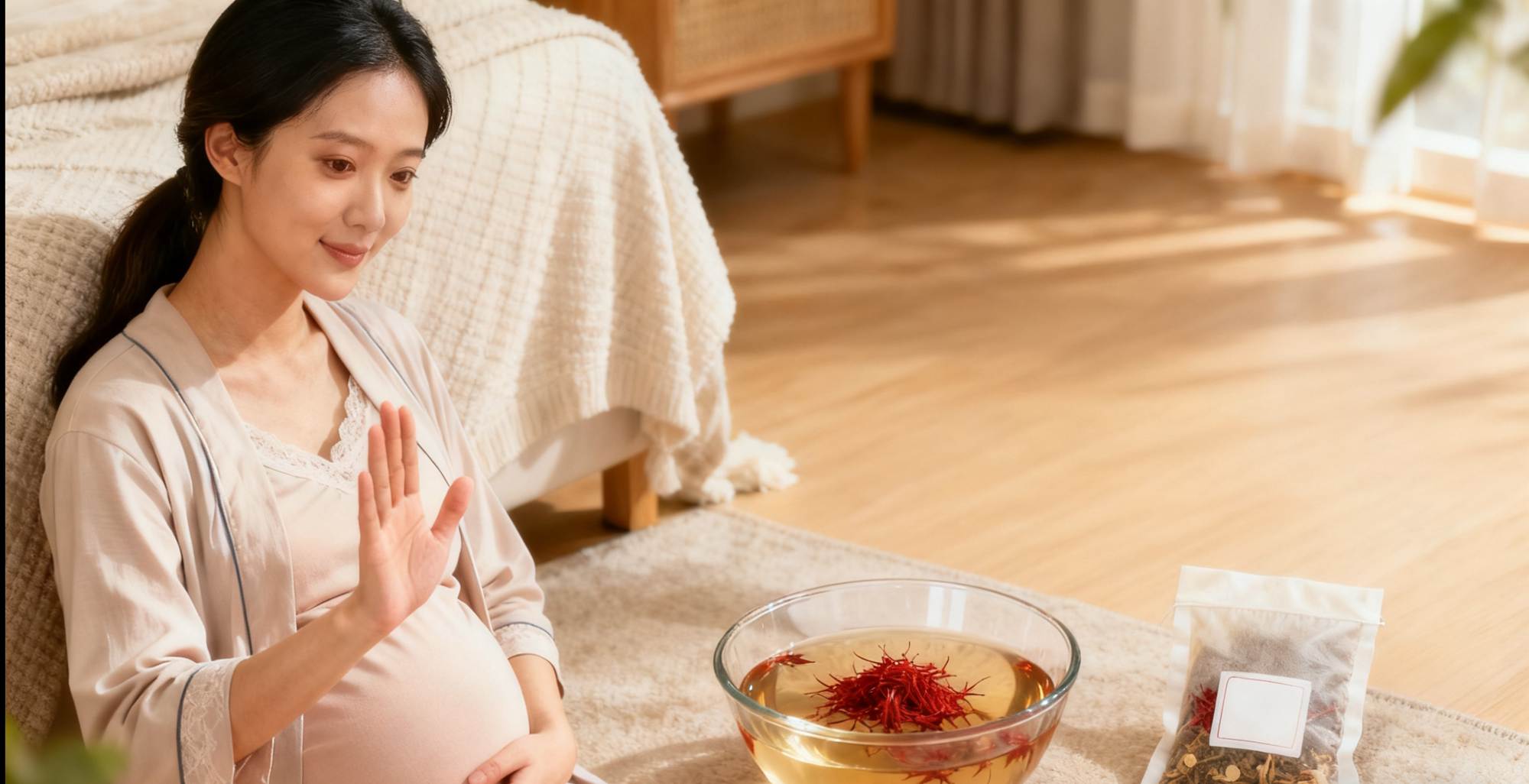
Liu Qingquan also advises that foot soaks are not recommended for patients with blood clots in the lower limbs or those with high blood pressure who experience very unstable or fluctuating blood pressure. Elderly individuals with frail constitutions should be supervised during foot soaks.
Finally, Liu Qingquan advises that the water temperature for foot soaks should not be too high. High water temperatures can cause irritability and disrupt sleep. It is recommended that the water temperature be close to body temperature. Foot soaks should generally last between 15 and 30 minutes, and should not be extended to avoid increasing heart rate and increasing stress on the heart. Drink a glass of warm water before and after foot soaks to replenish fluids.


